- HOME
- Alumni News
- Activity Reports
- Story of Vashkar Bhattacharjee
Activity Reports
Story of Vashkar Bhattacharjee
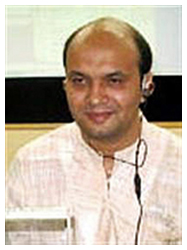
Vashkar Bhattacharjee has climbed what would seem to many people around the world as an unscalable summit. His achievements are many, and he continues to strive to improve the lives of people with disabilities in his country, Bangladesh. Vashkar has attended numerous international conferences and has, on behalf of his organization, YPSA, received several awards in recognition of their accomplishments. The odds against this are very high. In his story Vashkar tells us how he overcame those odds.
I am Vashkar Bhattacharjee, a visually impaired person from Chittagong, Bangladesh, and I am here to tell the story of my life…my ups and downs, joys and sorrows.
I was born in a village on the 1st of July, 1979. My father is a government employee. My mother is a housewife. I have one brother. I am married and have one lovely daughter.
There were no hospitals or doctors in my village. After I was born I was bleeding through my nose and mouth. My family did not know what to do. When I was two years old, they realized that I was blind.
As I grew older my family was confused about whether I should go to school or not, as people in Bangladesh think that blind people can do nothing. Most people think that it is impossible for a blind person to get an education. My family was very frustrated. My father heard from an eye doctor that there was a primary school for the blind in Chittagong, and I was admitted to that school.
After leaving the primary school, I attended a junior high school for sighted children. It was very hard for me because there were no braille books and the teachers did not know how to teach children who were visually impaired. When I finished junior high school I went to a high school for sighted students. My years attending mainstream schools led me to discover that there was a huge lack of facilities for people who are visually impaired. In those days braille books were the only means of education for visually impaired students. At junior high and high school, there were no braille books and there were very few writing frames or braille paper.
When I completed high school I tried to enter many universities, but they all refused my application because of my blindness. Some other visually impaired applicants and I therefore began a hunger strike. Suddenly, the university decided to let us enter, but again there were no facilities. The university teachers didn't know anything about braille or how to teach visually impaired students. Some of the teachers cooperated with us, but some did not. For example, one day in class I was taking notes on my braille slate, but the teacher thought I was playing. He told me to stop playing, to stand up and leave the room. I complained to the head of the department, and I showed the teacher who had asked me to leave his class that I had actually been taking notes, not playing. He was very surprised when I read my braille notes to him. He thought it was like magic.
In spite of these difficulties, with the great support of some teachers, family members and friends, I graduated with honors in history from Chittagong University and obtained a Master's degree in General History.
The Biggest Challenge
Finally, I was ready to be independent and to enter the job market in Bangladesh. It was the most difficult task, as only a very, very small number of visually impaired or blind people in Bangladesh have a job. Very few get an education. Most of them beg in the road. Some who have an education and have jobs work as teachers in schools for the blind, as lawyers, or in NGOs. Even if a visually impaired person receives a university education, it is often very difficult to find a job. I remained unemployed for some time. Then I realized that theoretical learning alone would not be enough for me to get a job. I needed to be technologically skilled.
On the Way to Achieving My Goal
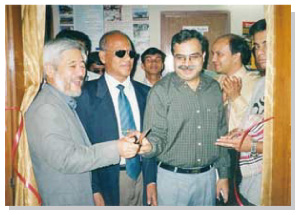
I was selected for the fourth Duskin Leadership Training in Japan, a one-year training course which ran from August 2002 to July 2003. I obtained training in Computer & Information Technology for Persons with Visually Impairment. The course is a program for persons with disabilities in Asia and the Pacific. After this I completed Duskin Follow-up Training in Bangkok, Thailand, in February 2004.
In 2006 I was introduced to the DAISY Consortium. After successfully completing the DAISY International Trainers' Training, conducted by DAISY Consortium in Bangkok, I became an International Trainer of the Digital Accessible Information System (DAISY). I work as the DAISY focal person in Bangladesh and am currently in charge of the first DAISY Focal Point in this country. I also completed the 3 week course "Information and Communication Technology for Visually Impaired Persons" in September, 2006 at APCD, Thailand.
My Roles & Responsibilities
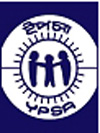
Since September 2004 I have been working with Young Power in Social Action (YPSA), a social development organization directed towards assisting development initiatives to bring positive socio-economic change. I now hold the position of the Program Manager and Focal Person of the department of IRCD (ICT and Resource Center on Disabilities) and responsible for the overall activities of the organisational disability issues.
In addition I am also the Country Representative in Bangladesh for GAATES (Global Alliance on Accessible Technologies & Environments) and currently hold the position of Convener of the National ICT thematic group of NFOWD (National Forum of Organizations Working with the Disabled). I have been working as national consultant on web accessibility for the Access to Information (a2i) Programme under the Prime Minister's Office, Digital Bangladesh initiative. I have provided consulting services to a2i for some time, specializing in issues related to disability & development, ICTs for development, e-Accessibility and Information accessibility for persons with a disability, establishment of personal rapport with national and international media agencies and development networks. I have been elected as General Secretary of the Chittagong Society for the Disabled (CSD) which is a network of NGOs, DPOs and CSOs. In addition, I am also the founding member of the Bangladesh Visual Impaired Peoples Society (BVIPS).
Leading Role in On-going Initiatives
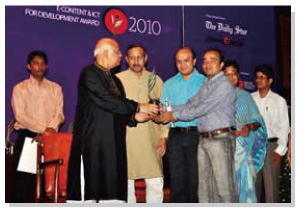
There are a number of initiatives which I currently play a lead role in, including:
- Strengthen the Trusted Intermediary (TI) in Bangladesh through the World Intellectual Property Organization (WIPO) , Accessible Books Consortium (ABC) , TIGAR Service
- Production of multimedia digital talking book, which is supported by Service Innovation Fund, Access to Information (a2i) of the Prime Minister's Office, Bangladesh.
- Youth Solutions! Technology for Skills and Employment for youth with disability "Empowering youth with disability through market driven ICT skills" organized by the World Bank, Microsoft Sri Lanka and Sarvodaya-Fusion
- Conversion of UNCRPD in accessible format with collaboration of Sitakund Federation of DPO's awarded by the Disability Rights Fund
- Development Initiative for Social Change (DISC) supported by Action Aid
- Community Radio program on Disability Rights, Radio Sagor Giri FM 99.2
Then, Now, & My Dream for the Future
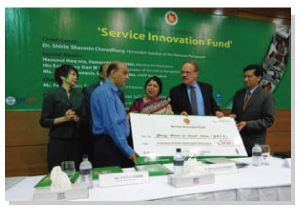
In the past it was very difficult for visually impaired students to get an education. The number of accessible study materials was inadequate. Braille is the only format that was available, and it was in extremely limited quantities. Since my professional life began I have worked to ease the way for education for visually impaired students. DAISY showed me the exact thing that I want and need to do this. Using the DAISY standard we have converted all the text books for class I-X into multimedia digital talking books. From this format they can be converted further into accessible eBooks, digital braille books and these can be made available to students with a print disability or learning disability. For the first time in Bangladesh we have progressed in establishing a National Digital Talking Book Library in order to minimize the information gap between the so-called "normal people" and those who have a disability. In addition, I am looking forward to arranging more professional and ICT skill development training for youth who have a disability so that they will be able to enter all types of professions and perform any duties handed to them.
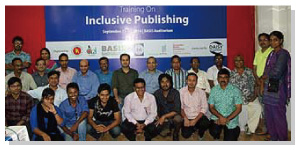
I belong to a country where ten percent of the total population is disabled. Approximately 4 million people are visually impaired. However, only 1 per cent of people who are blind or have a visual disability are educated. Life for girls who have a disability is especially difficult, because they have no chance to marry, find a job or receive an education. In my country most visually impaired people come from very poor families. In the past we had no good advocacy organizations for the visually impaired which could campaign for our rights. We encountered numerous problems and faced awkward situations. Sometimes I felt surprised to realize how little people know about those of us who are blind or visually impaired, and sometimes it was humiliating. But the scenario has been changing and it is moving forward for the betterment of all. Together we can build a world free of barriers.
The awards Vashkar has received on behalf of YPSA in recognition of their accomplishments include:
- National e-Content and ICT4D Champion Award 2010 for DAISY For All in Social Inclusion and participation categories
- Manthan Award South Asia, awarded for DAISY for All in Bangladesh in the e-inclusion category
- Innovation Grant by Access to Information Program (a2i) of the Prime Minister Office for DAISY book Production in 2013
- 'Youth Solutions! Technology for Skills and Employment', 2013, World bank and Microsoft Sri Lanka
- ISIF Asia award for producing accessible reading materials for grades 1-10 students with a print disability through the DAISY standard. These books are now being uploaded into Jatiyo e-Tathyakosh
Additional Information & Resources
- Presentation on Policies ICT tools and applications for people with disabilities Presented by Vashkar Bhattacharjee
- Report on DAISY For ALL in Bangladesh, 2004-2008
- a2i Programme: Jatiyo e-Tathyakosh
- Inequality in Disability in Bangladesh




